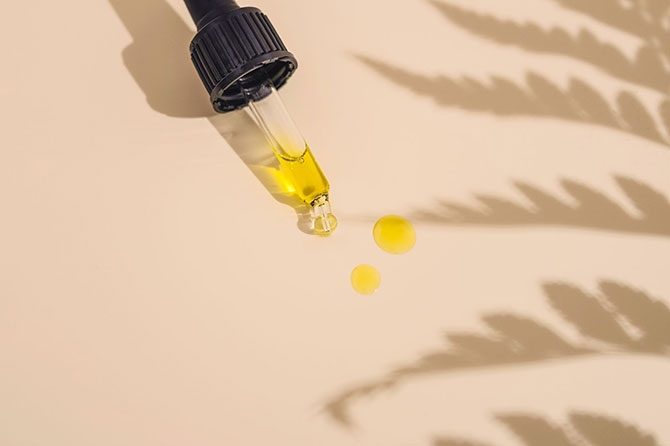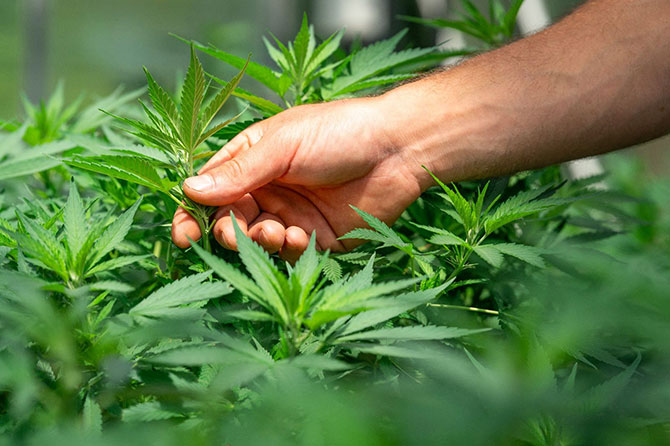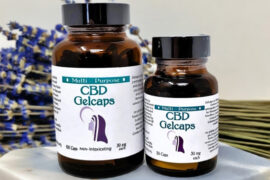If you follow the cannabis industry, you’ve probably heard of the two most prevalent cannabinoids in the cannabis plant, cannabidiol (CBD) and delta-9-tetrahydrocannabinol (THC). However, research suggests that the Cannabis sativa plant might also contain a variety of other potentially beneficial phytocannabinoids, such as delta-8-tetrahydrocannabinol or Delta-8-THC.
In this post, we’ll delve deeper into delta-8 THC, covering its potential advantages, how it compares to CBD and delta-9 THC, whether it is legal, and more.

What Is Delta 8?
Delta-8 THC, also referred to as delta-8-tetrahydrocannabinol, is one of more than a hundred cannabinoids in the Cannabis sativa plant. However, delta-8 THC doesn’t naturally occur in high concentrations in cannabis plants. This means delta-8 THC is primarily produced synthetically by converting cannabidiol or delta-9 THC into delta-8 THC.
Delta-8 THC is a psychoactive molecule structurally related to but less effective than delta-9 THC, the substance commonly referred to as THC that produces an intoxicating ‘high’. Therefore, delta-8 THC may offer many of the same experiential advantages as delta-9 THC, such as sedation and pain relief but with different side effects.
How Does It Compare to CBD and Delta-9 THC?
So how does delta-8 THC compare to CBD and delta-9 THC? Here are some of the most important similarities and differences:
- Delta-9 THC is known to cause euphoric experiences and a host of negative effects, including panic attacks and reduced mental capacity. When it comes to its legal status in the U.S., despite state regulations varying for recreational and therapeutic usage, delta-9 THC is not legal on a federal level and cannot be transported across state lines.
- Although delta-8 THC and delta-9 THC are both psychoactive substances, delta-8 THC is far less strong due to its slightly altered molecular structure. While both substances induce a euphoric feeling, delta-8 has a milder high. However, it also isn’t federally legal.
- CBD or cannabidiol shares many of the alleged benefits of delta-8 and delta-9 THC without causing users to get high. Some potential advantages include reductions in anxiety, depression, and chronic pain. However, unlike delta-8 THC and delta-9 THC, CBD is considered hemp by most governments and is legal in the US and many countries.
The human body’s endocannabinoid system (ECS) responds to all cannabinoids, including CBD, delta-8 THC, and delta-9 THC. The ECS, which is a part of the human nervous system, aids in regulating several crucial physiological processes, including pain perception and inflammation. The active components of cannabis bind to endocannabinoid receptors, which are present in the muscle, brain, cardiovascular, reproductive, and gastrointestinal systems.

Potential Benefits and Adverse Effects of Delta-8
There are several advantages and disadvantages related to delta-8 consumption. Let’s check the most notable ones.
Delta-8 THC Benefits
According to the Journal of Cannabis Research, consuming delta-8 THC may have sedative, euphoric, and pain-relieving effects.
However, there are few clinical trials and scientific studies regarding delta-8 THC. Therefore, more information is required to confirm the potential benefits of this cannabinoid. Studies investigating possible advantages, such as delta-8 THC’s capacity to reduce anxiety, boost appetite, and possess analgesic and neuroprotective characteristics, are still in progress.
Risks and Side Effects
Because delta-8 and delta-9 THC are so similar, they both cause the same adverse effects, including:
- Dry mouth
- Red eyes
- Increased heart rate
- Anxiety and paranoia
- Slowed reaction times
- Difficulty concentrating
- Altered sense of time
- Trouble with coordination
- Difficulties with short-term memory
In addition, delta-8 might also have risks because it is synthetically produced. To create delta-8 THC synthetically, CBD is transformed using potentially toxic compounds, including strong acids and organic solvents. These products are not subject to regulation, and there are no scientific studies that demonstrate their long-term effects on health.
However, research suggests that because delta-8 THC has a lesser psychoactive strength than delta-9 THC, it might have fewer negative side effects and a milder effect on consumers.
Is Delta-8 Legal?
The legality of delta-8 THC is in the gray area. According to the 2018 Farm Bill, the products made from hemp plants that don’t contain more than 0.3% delta-9 THC are legal to use and sell. But the bill doesn’t specifically mention delta-8 products, which signifies that using and selling delta-8 products is technically legal.
On the other hand, the fact that delta-8 is made by converting delta-9 THC or CBD into delta-8 THC synthetically makes it illegal. In addition, the sale of goods containing both delta-9 THC and delta-8 is strictly forbidden by several state legislations. For instance, in Colorado and New York, delta-8 THC products have been explicitly prohibited. In some states where THC is prohibited, like Wisconsin, they allow sales of delta-8 THC products. It’s a gray area upon which state regulations take varying positions.
Is Delta-8 THC Safe?
There are certain safety concerns since delta-8 is produced synthetically and is not adequately controlled. In addition, the Food and Drug Administration (FDA) and the Centers for Disease Control and Prevention (CDC) point out that there have been more complaints about delta-8 and reports of unwanted effects needing medical attention and occasional hospitalization.
The FDA is citing more than a hundred complaints related to this compound between 2020 and 2022. These incidents had a variety of characteristics, including nausea, hallucinations, and even loss of consciousness.
If you’re seeking a legally acceptable alternative to delta-8 that has no impairing effects and won’t make you feel “high,” you might want to think about trying CBD.
Where Can You Get Delta-8 THC?
There are over-the-counter Delta-8 items available online, at convenience stores, cannabis and vape shops, gas stations. You can buy them as pens for vaping, gummies, tinctures, drinks, sweets, joints, or oils. But, as mentioned before, there is no quality control for these products or their component list. In addition, it is easy to mistake Delta-8 products for CBD, so be careful when shopping.
Does It Produce a Positive Drug Test Result?
There isn’t enough data available from research to say whether consuming delta-8 THC will show up on a drug test.
Researchers believe excessive use may lead to a positive drug test because delta-9 THC and delta-8 THC have chemical similarities. Commercial urine drug tests don’t distinguish between various cannabinoids, so it’s advisable to stay away from delta-8 products if you’re getting ready to have a drug test.
What Is Delta 8: The Bottom Line
Delta-8 THC may be a great option for those who prefer a milder “high” than they experience from conventional delta-9 THC and in some states, it’s the only form of THC that is legal to purchase and own. And even though it is known to have milder effects than delta-9 THC, more research is required to fully understand the potential benefits and adverse effects of delta-8 THC.
Furthermore, there are worries that it may be challenging to determine the contents of items containing delta-8 THC due to the lack of regulation surrounding this substance. This is why when purchasing these products, it is important to know what chemicals they are using to process and to see the purity and potency test results.







Comments are closed.